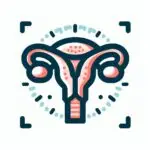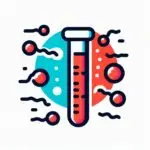Male Fertility Assessment and Investigations
Talk to our leading fertility doctor
Speak to us about in person video phone consultations
Male Fertility and Issues with Conceiving and Miscarriage
Male fertility issues are a significant concern for those struggling to conceive. It affects approximately 7% of men worldwide, making it a prevalent issue in fertility. Male fertility issues can result from various factors, but it’s essential to understand its causes and potential treatments to offer hope to couples seeking to start a family through IVF (In Vitro Fertilisation).
Male infertility can be a complex and emotionally taxing issue for couples. However, with advancements in medical technology and the availability of various treatments, many couples can still achieve their dream of parenthood. At our IVF clinic, we offer a comprehensive range of diagnostic services and treatment options to address male infertility. We are dedicated to helping couples overcome these challenges and embark on their journey towards parenthood. If you or your partner are struggling with male infertility, we encourage you to reach out to us for a personalised evaluation and consultation. Together, we can explore the most suitable treatment options to fulfill your dream of having a child.
Dr Elgey and team have a proven track record in managing and performing IVF procedures. With success rates above industry standards we strive to help you achieve the best outcomes.
Frequently Asked Questions
1. Sperm Production Issues: A common cause of male infertility is the inadequate production of healthy sperm. This condition, known as oligospermia or azoospermia, can be due to hormonal imbalances, genetic factors, infections, or exposure to toxins like chemotherapy or radiation.
2. Sperm Motility Problems: Even if sperm production is normal, motility issues can hinder their ability to reach and fertilize the egg. Reduced sperm motility, known as asthenospermia, can be caused by structural abnormalities in the sperm’s tail or exposure to excessive heat.
3. Sperm Morphology Abnormalities: Sperm must have a proper shape to penetrate the egg. Abnormal sperm morphology (teratospermia) can make fertilization challenging.
4. Obstructive Factors: Blockages in the male reproductive tract, such as vasectomy or congenital conditions, can prevent sperm from being ejaculated during ejaculation.
5. Ejaculatory Dysfunction: Some men may have difficulty ejaculating or may experience retrograde ejaculation, where semen is directed into the bladder instead of out of the body.
6. Varicocele: A varicocele is an enlargement of the veins within the scrotum. It can lead to elevated testicular temperatures, impairing sperm production and function.
7. Infections and Inflammation: Infections in the reproductive system, such as epididymitis or prostatitis, can damage sperm and reduce fertility.
8. Lifestyle Factors: Factors like smoking, excessive alcohol consumption, obesity, and stress can negatively impact sperm quality and quantity. Anabolic steroids and certan body building supplements can have significant impacts.
1. Lifestyle Modifications: Encouraging a healthy lifestyle can significantly improve fertility. This includes maintaining a balanced diet, exercising regularly, reducing stress, quitting smoking, and limiting alcohol consumption.
2. Medications: Depending on the specific cause of infertility, we may prescribe medications to address hormonal imbalances, infections, or inflammation. Hormone therapy can stimulate sperm production in cases of hormonal deficiencies.
3. Surgical Interventions: Surgical procedures like varicocelectomy can correct physical obstructions or abnormalities in the male reproductive tract. In some cases, sperm can be directly extracted from the testicles or epididymis for use in assisted reproductive techniques like IVF.
4. Assisted Reproductive Techniques (ART): For couples facing severe male infertility issues, IVF with Intracytoplasmic Sperm Injection (ICSI) offers hope. ICSI involves injecting a single sperm directly into the egg, bypassing many barriers to fertilisation.
5. Sperm Retrieval Techniques: When sperm cannot be ejaculated naturally due to blockages or other factors, sperm retrieval methods such as Testicular Sperm Extraction (TESE) or Percutaneous Epididymal Sperm Aspiration (PESA) can retrieve viable sperm for use in IVF.
6. Counseling and Support: Dealing with infertility can be emotionally challenging for both partners. Providing counseling and support services can help couples cope with the psychological and emotional aspects of fertility treatment.
Through our partners at City Fertility Centre, we can offer sperm testing and assessment
Sperm freezing allows men to to preserve sperm for future use. We can arrange for this to be performed after assessment and screenin
Sperm donation to a known person or anonymously can be undertaken. Requirements do vary depending on what you are planning.
Donating anonymously can be arranged via our donor team at ADDAM sperm bank.
Anabolic steroids and some supplements used for body building can temporarily, or in some cases permanently damage sperm production. If ceased it may take 3 to 6 months to assess if sperm production has been restored.
I would like to know more about
Why you should choose to see us

Personalised
Care
A team that knows you’re not just a number

Science and Results
Working with alternative options

Telehealth
Options
Video or mobile for your convennience








